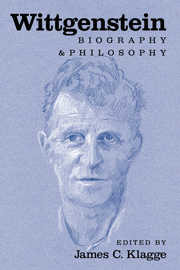Philosophical Biography: The Very Idea
Published online by Cambridge University Press: 27 March 2010
Summary
The purpose of philosophical biography is very simply stated: it is to understand a philosopher. By “philosopher” here I do not necessarily mean someone who earns his or her living from writing and teaching philosophy. Jean- Paul Sartre, for example, wrote philosophical biographies of Charles Baudelaire, Jean Genet, and Gustave Flaubert, none of whom wrote or taught philosophy. To regard someone as a philosopher in this sense, that is, as an appropriate subject for a philosophical biography, it is enough to see them as someone whose thought – whether expressed in poetry, music, painting, fiction or works of philosophy – it is important and interesting to understand.
Now, of course, the central question is raised: to understand somebody's thought, why is it necessary to understand them? Can't we, for example, understand The Critique of Pure Reason, or indeed Madame Bovary, without knowing or understanding anything at all about Kant or Flaubert themselves? In one sense, the simple answer to this is “yes, of course we can.” Indeed, not only can we separate life and work, but, for certain purposes we must do so. Whether the arguments in Critique of Pure Reason are valid or not cannot depend on anything we know about the details of Kant's life, nor can the value of Madame Bovary as a work of fiction depend on what we think of Flaubert himself.
- Type
- Chapter
- Information
- WittgensteinBiography and Philosophy, pp. 3 - 15Publisher: Cambridge University PressPrint publication year: 2001
- 11
- Cited by

